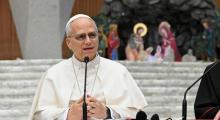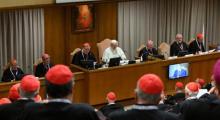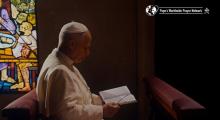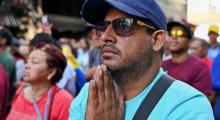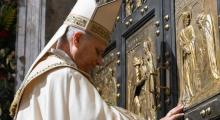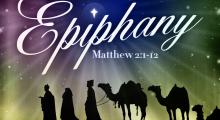Issued by the Catholic Center for Studies and Media - Jordan. Editor-in-chief Fr. Rif'at Bader - موقع أبونا abouna.org
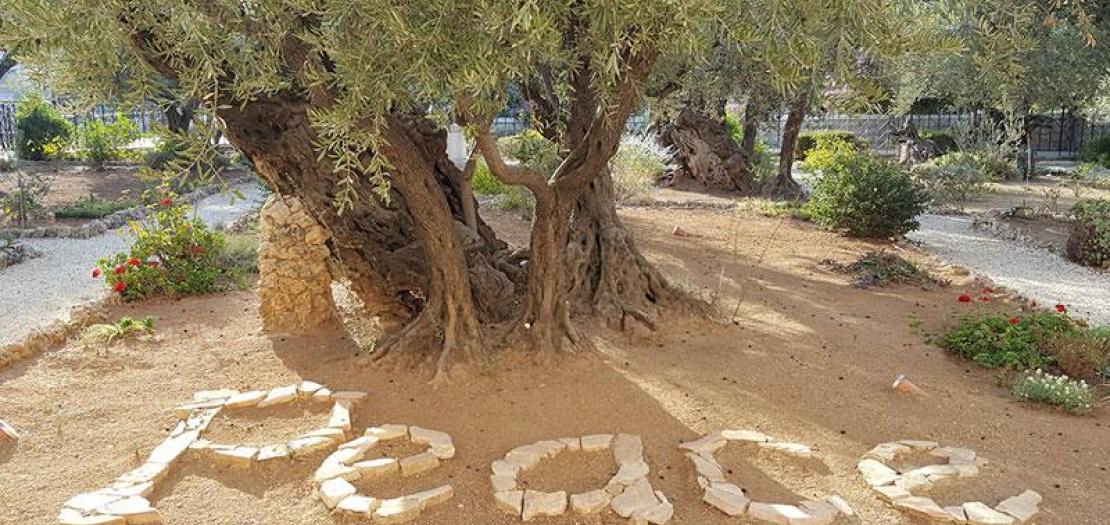
Cardinal Dominique Mathieu, the Latin-rite archbishop of Tehran-Isfahan, Iran, who Pope Francis elevated to the cardinalate earlier December 2024, finds himself at the center of an increasingly volatile region.
Not only must the Franciscan cardinal, who serves as Iran’s only Latin-rite bishop, navigate delicate relations with Iran, a nation currently the focus of tensions and hostilities with Israel, but also the recent collapse of the Assad regime in neighboring Syria.
In this December 18 email interview with the Register, Cardinal Mathieu explains how he is working to foster “dialogue and understanding” with the Persian nation, while also working for a better world amid such political upheaval.
A Belgian national, Cardinal Mathieu further reflects on what being a cardinal means to him, the importance of St. Francis of Assisi’s example in his meeting with Sultan Malik al-Kamil in the 13th century, and why he sees synodality as having the potential to strengthen the Catholic Church. A keen astronomer in the past, he explains how studying the universe “enhances his spirituality.”
Cardinal Mathieu was appointed archbishop of Tehran-Isfahan in 2021 after years of the see being vacant. He ministers to a small flock (just 9,000 according to the Vatican in 2022) in Iran’s mostly Shiite Muslim population of 91 million.
Your Eminence, what have been your reflections on your elevation to the Sacred College of Cardinals? What does it mean to you personally?
Personally, I never envisioned myself taking on the responsibilities entrusted to me. However, I recognize that everything that preceded this moment prepared me for it, as God is the one who guides my steps. I view the cardinalate as an invitation to sanctify myself further and to devote myself more fully, body and soul, to God and his people.
Your appointment as archbishop of Tehran-Ispahan in 2021 was viewed as important for strengthening dialogue with Iran, especially in the context of ongoing tensions in the Middle East. How do you expect being elevated to the cardinalate will further help you in that role?
The episcopate had to focus primarily on providing the small community of Latin Catholics in Iran with a shepherd, guiding them back into the broader fold of the Church. Pope Francis embodies the spirit of inclusion, not only for marginalized minorities, such as Catholics — who represent less than 0.0025% of the population — but also for the Twelver Shiite majority that governs the Islamic Republic of Iran. Taking up the words of the Holy Father to the participants of the dialogue organized by the Dicastery for Interreligious Dialogue on Nov. 20: “The decision [to elevate the Archbishop of Tehran-Ispahan to the College of Cardinals] expresses my closeness and concern for the Church in Iran, and in turn honors the entire country.”
After the ousting of Syrian President Bashar al-Assad on December 8, how do you see the situation developing in the region and especially Syria’s relations with Iran? What are the keys to peace in the region in your view, and do you foresee an opportunity for you to help mediate peace there?
The Lord has never ceased to speak about the cross that we must bear. To withstand the storm, one must build one’s house on the rock which is Christ rather than on shifting sand. His yoke is designed to help us to carry the burdens of this world, and being the son of a carpenter, is tailored to our capacity so that it does not weigh us down. Peace begins with inner conversion, transforming our hardened hearts into life-giving flesh. By embodying the qualities of salt, fresh leaven and visible light in the darkness, we can contribute — as challenging as it may be — to the creation of a better world, a common home where we are all brothers and sisters, despite our differences.
As a Franciscan cardinal, how important is Franciscan spirituality in the work that you do, especially the example of the historic meeting of St. Francis and the Sultan in the 13th century?
For St. Francis, fraternity is essential. It involves contemplating the work of God in every creature and in all of creation. Everything has been entrusted to us, yet nothing truly belongs to us.
As “friars minor” we must approach the world with humility. The simple can often confound the wise. We are called to be pure, as children, as the Lord teaches us. He himself took on the condition of a child to enter a world that often despised him, yet adored him as well. Francis’ meeting with the Sultan may not have been viewed as a success by worldly standards, as it did not immediately end the conflict. However, it demonstrated that it is possible to engage with great leaders and move them while remaining simple and authentic. This encounter serves as a profound example of how humility and fraternity can foster dialogue and understanding, even in times of division.
The Holy See has, historically, had relatively good relations with Iran in terms of forming a united front in resisting anti-life policies in such institutions as the United Nations. What are your relations like with Iran’s Shiite religious and political leaders and are you also involved in such resistance work?
On the ground, our relationships are still in an embryonic state and are gradually being developed. Efforts to engage with Iran’s Shia religious and political leaders are ongoing, and we are committed to fostering dialogue and understanding. While the framework for collaboration is still taking shape, our aim is to work together effectively in resisting anti-life policies and advocating for the dignity of all individuals.
What are your views on Pope Francis’ reforms, especially synodality? Do you believe synodality will help bring the faith to people, helping the Church to be less self-referential, or do you share concerns that it is a vehicle for heterodoxy that could undermine the hierarchical structure of the Church and in so doing her moral authority?
Synodality is a fundamental aspect of the Church’s identity and represents a dynamic process that requires continuous renewal of its decision-making structures while upholding the authority of doctrine. Since faith is a gift from God, synodality can enhance the way we live out this faith. It provides an opportunity for deeper engagement with the Church’s teachings and fosters a more inclusive environment, which can help bring faith to a broader audience. Rather than undermining the Church’s hierarchical structure, synodality has the potential to strengthen it by encouraging collaboration and communion among all members of the Church.
How do you see the following issues that appear to be open for discussion: women deacons, clerical celibacy rule, teaching on contraception, teaching on homosexuality, and Holy Communion for civilly remarried divorcees? Are you supportive of a change in approach to each of these issues, and if so, how?
These questions primarily reflect concerns prevalent to the Western context, but they are not as relevant to the region in which I live. The challenges faced by the Church in my area often differ significantly from those in the West.
What are your views on Traditionis Custodes and do you celebrate Mass in the Old Rite yourself?
The apostolic letter in the form of motu proprio is quite clear. As a son of Vatican II, I have always celebrated the Mass according to the Roman Missal established after the 1970 reform.
Can you tell us more about your passion for astronomy? What drew you to the field and how does it connect with your own spirituality?
My passion for astronomy is something I have somewhat set aside since becoming a bishop. I have always been fascinated by the splendor of the deep sky and the mysteries of the vast macrocosm. I began by observing the sky with the naked eye, and eventually delved deeper, using specialized astronomical instruments for deep-sky observation and practicing astrophotography. This hobby encompasses many fields, including optics, mechanics, computer science, photography, etc. It represents a continuous journey of learning new techniques and discovering an inexhaustible array of wonders, each more remarkable than the last. My engagement with astronomy enhances my spirituality, as I marvel at the grandeur of Creation and reflect on the divine artistry evident in the universe.


